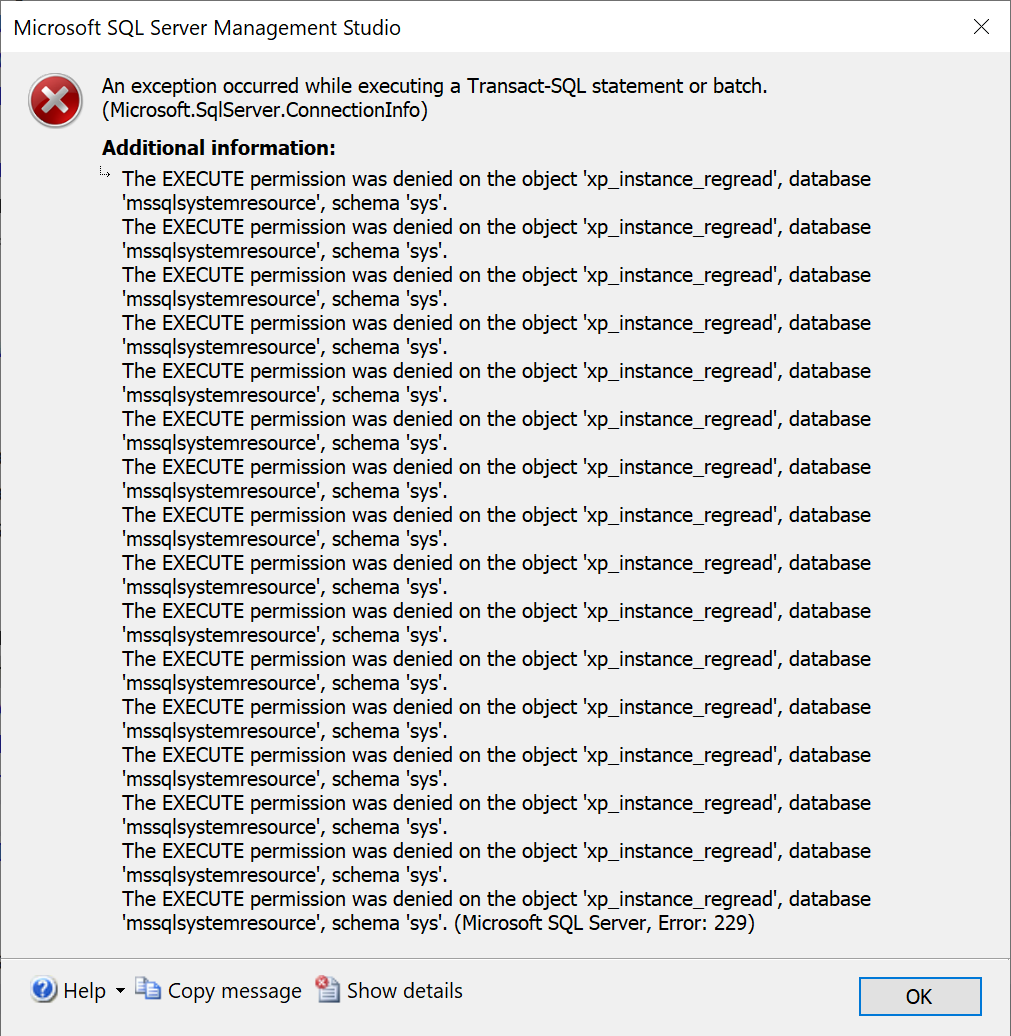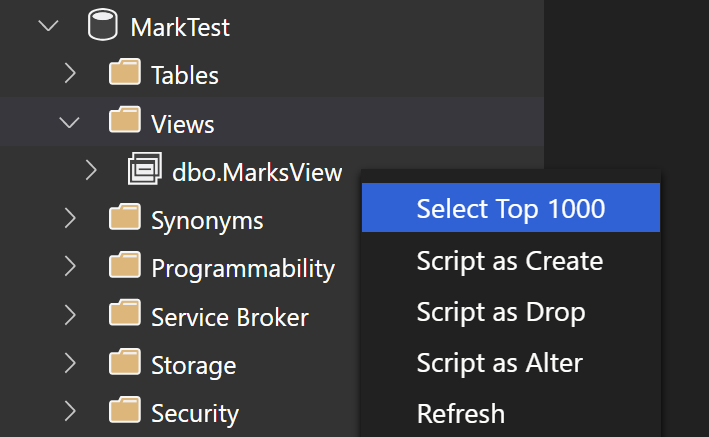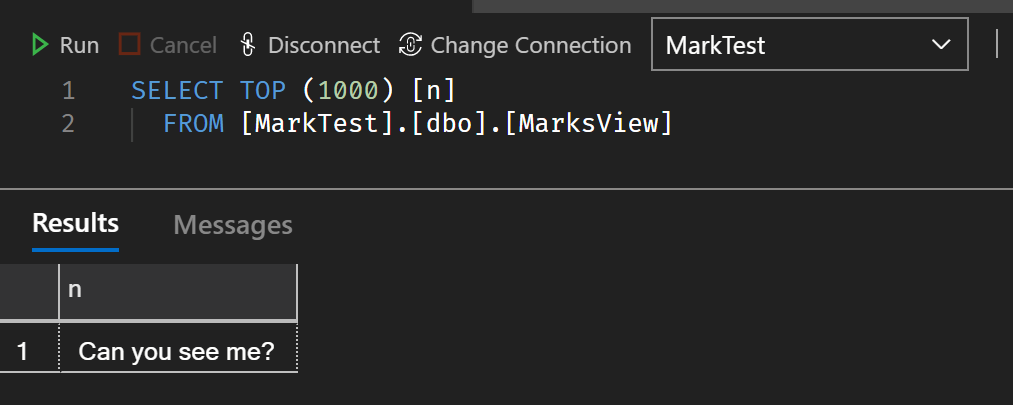The problem
I came across an interesting (!) issue with an Azure Sql Managed Instance today. One of our users came across this error when trying to SELECT from a view in a database where they are not a member of the db_owner database role or any elevated server-level permission by right clicking the view in SSMS 18.8 and choosing Select Top 1000 Rows.


The full text of the error is The EXECUTE permission was denied on the object 'xp_instance_regread', database 'mssqlsystemresource', schema 'sys'.
I verified that this was indeed the case with:
use [master]
select * from sys.database_permissions
where major_id = object_id(N'master.sys.xp_instance_regread')
and state = 'G'
and type = 'EX'
No rows returned.
Running the query “normally” in a Query Editor window works just fine, you just can’t right click the Object in the Object Explorer.

The “fix”
I’ve never seen this issue with SQL Server on IaaS VMs or on-premises, or even with Azure Sql Database, but managed to “fix it” with running this against the master database.
use [master]
GRANT EXECUTE ON [master].[sys].[xp_instance_regread] TO [public]
Everything is back to normal, or is it? The more astute among you may guess what happens next.
Uh oh, it’s not fixed :grimacing:
Yes, you guessed correctly. During routine maintenance, Microsoft fail over databases on the Managed Instance to other nodes and as you know, the master database does not get failed over. So on the node it fails over to in the next patching cycle which is who-knows-when (because it’s managed), the error resurfaces and users start complaining again.
The kludgy fix
Create a SQL Agent job to run the GRANT EXECUTE every morning before users start using the database. This does indeed work, but I’m managing code that Microsoft should be managing and it’s ugly.
The alternative fix
Use Azure Data Studio because let’s face it, it’s much easier on the eyes. When doing the exact same thing in Azure Data Studio the error does not occur.


What next?
I’ve raised a Support Request with Microsoft Azure to see what they have to say, and they might just say that SSMS is deprecated, use Azure Data Studio. I’m not sure why SSMS is needing to run xp_instance_regread when selecting from a view, quite bizarre.
I will update this blog post when Microsoft have provided some input.
Update 25th March 2021
According to Microsoft read and write to the registry via extended stored procedures should be revoked for all non-dbo users. The Vulnerability Assessment tool notified our team of High security vulnerability VA2110 so we locked it down and removed access to read/write the registry by low-privileged users.
Rule VA2110
Execute permissions to access the registry should be revoked.
Registry extended stored procedures allow Microsoft SQL Server to read write and enumerate values and keys in the registry. They are used by Enterprise Manager to configure the server. This rule checks that the permissions to execute registry extended stored procedures have been revoked from all users (other than dbo).
Funnily enough if you read that description carefully you will see a reference to Enterprise Manager! Anyone remember that?

Despite me pointing out the problem with this recommendation, the Microsoft Support Engineer didn’t reply to my request to get this changed. He also confirmed that system databases get replicated in a Managed Instance. The curiosity in me really wants to know how this works and there are some hints on the Managed Instance architecture page, but it looks like the MI is using LRS blob storage block-level replication to move data around rather than an availability group for the General Service Tier, at least.
After all, it is a Managed Instance, and I shouldn’t need to concern myself with such details.